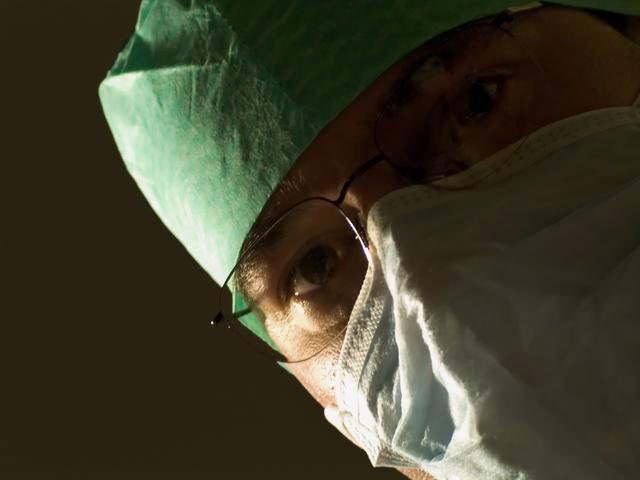Psychiatrists Least Religious Among Physicians

Get the world’s most fascinating discoveries delivered straight to your inbox.
You are now subscribed
Your newsletter sign-up was successful
Want to add more newsletters?

Delivered Daily
Daily Newsletter
Sign up for the latest discoveries, groundbreaking research and fascinating breakthroughs that impact you and the wider world direct to your inbox.

Once a week
Life's Little Mysteries
Feed your curiosity with an exclusive mystery every week, solved with science and delivered direct to your inbox before it's seen anywhere else.

Once a week
How It Works
Sign up to our free science & technology newsletter for your weekly fix of fascinating articles, quick quizzes, amazing images, and more

Delivered daily
Space.com Newsletter
Breaking space news, the latest updates on rocket launches, skywatching events and more!

Once a month
Watch This Space
Sign up to our monthly entertainment newsletter to keep up with all our coverage of the latest sci-fi and space movies, tv shows, games and books.

Once a week
Night Sky This Week
Discover this week's must-see night sky events, moon phases, and stunning astrophotos. Sign up for our skywatching newsletter and explore the universe with us!
Join the club
Get full access to premium articles, exclusive features and a growing list of member rewards.
Psychiatrists are the least religious of all physicians, a nationwide survey reveals.
The study, published in the September issue of the journal Psychiatric Services, also found that religious physicians are more likely to refer patients to a clergy person than a psychiatrist or psychologist.
"Something about psychiatry, perhaps its historical ties to psychoanalysis and the anti-religious views of the early analysts such as Sigmund Freud, seems to dissuade religious medical students from choosing to specialize in this field," said lead study author Farr Curlin, an assistant professor of medicine at the University of Chicago.
In a past study, Curlin and his colleagues reported most doctors are willing to discuss religion with patients.
Practice faith
In 2003, Curlin and his colleagues surveyed 1,820 practicing physicians, from which 1,144 physicians responded, including 100 psychiatrists. The survey contained questions about medical specialties, and various aspects of religion. That data has now been analyzed.
- Whereas 61 percent of other physicians reported Protestant or Catholic affiliation, just 37 percent of psychiatrists were associated with the two religions.
- Nearly 30 percent of psychiatrists were Jewish denomination compared with 13 percent of other physicians.
- 17 percent of psychiatrists reported "none" for religion compared with 10 percent of other doctors.
Participants also responded to a hypothetical scenario involving a mentally-disturbed patient, saying whether they would refer the patient to a: psychiatrist/psychologist, clergy member/religious counselor, healthcare chaplain, or other.
Get the world’s most fascinating discoveries delivered straight to your inbox.
- Overall, more than half of other physicians would refer a patient to a psychiatrist/psychologist.
- 25 percent would refer to a clergy member/religious counselor.
- 7 percent would refer to a healthcare chaplain.
- 12 percent would refer to someone else.
Doctor's diagnosis
The authors note just because a doctor chooses to refer a patient to a clergy member, however, does not equate with an unwillingness to refer patients to psychiatrists.
However, the religious beliefs of doctors could be an important factor, they say, for patients' mental healthcare.
"Because psychiatrists take care of patients struggling with emotional, personal and relational problems," Curlin said, "the gap between the religiousness of the average psychiatrist and her average patient may make it difficult for them to connect on a human level."
Whether a gap between patients and doctors exists was not examined.
A survey of more than 1,700 American adults conducted by Baylor University and the Gallup Poll in 2005 found that about 10 percent reported no affiliation with a religious group or denomination, while 34 percent reported Evangelical Protestant affiliation and 21 percent Catholic.
Curlin's study on physician religious beliefs was funded by the Greenwall Foundation, National Center for Complementary and Alternative Medicine and Robert Wood Johnson Clinical Scholars Program.
Jeanna Bryner is managing editor of Scientific American. Previously she was editor in chief of Live Science and, prior to that, an editor at Scholastic's Science World magazine. Bryner has an English degree from Salisbury University, a master's degree in biogeochemistry and environmental sciences from the University of Maryland and a graduate science journalism degree from New York University. She has worked as a biologist in Florida, where she monitored wetlands and did field surveys for endangered species, including the gorgeous Florida Scrub Jay. She also received an ocean sciences journalism fellowship from the Woods Hole Oceanographic Institution. She is a firm believer that science is for everyone and that just about everything can be viewed through the lens of science.
 Live Science Plus
Live Science Plus










